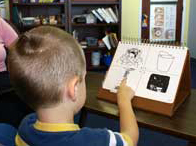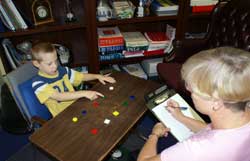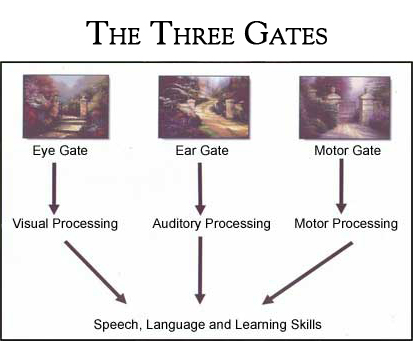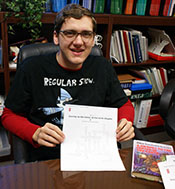Speech-Language Therapy
“A Time to Listen, A Time to Speak”
A child’s educational success is based on his/her communication skills, yet most schools assume that children have good listening and speaking skills. On these two skills, teachers intend to build reading, writing, and arithmetic. Most children naturally acquire all the skills necessary for communication during the first few years of life. However, one out of ten children struggle in the development of these basic skills.
Why? Exciting new breakthroughs in research are pointing to the importance of timing in relation to auditory processing skills. Numerous studies have shown that ten percent of all children have a specific difficulty making reliable distinctions among speech sounds. These children hear the sounds, but new research shows that it takes a longer duration of the sound (100 to 500 milliseconds, rather than 10’s of milliseconds) to discriminate the different speech sounds. This failure to make reliable discriminations interferes with receptive language skills and the learning of phonics.
Auditory processing skills can be trained with a revolutionary auditory processing and language therapy through Scientific Learning Corporation. The “games” are especially designed to stretch out the consonant sounds and slightly increase their volume to enable the child to hear each unique phoneme (speech sound). As the child progresses, the computer alters the games in minute increments to continue the progression toward normal listening skills. This treatment produces permanent changes in the child’s ability to understand spoken and written language.
Once a child’s listening skills are up to speed, then many children begin to self-monitor their own speech production. If the child does not start to self-correct, then traditional speech therapy is indicated. The exciting news is that the remediation of lisps, slurs, substitutions and reductions takes less time.
What about children who stutter? The cause of stuttering has been argued for years and years. My approach for helping children who stutter is to remove “the stressors” that can be removed. If the child has an Auditory Processing Disorder, or a Visual Processing Disorder, or a Motor Processing Disorder and those weakness are remediated, then the underlying pressure, strain, and anxiety is alleviated, and the child has more fluent speech.
What if a child has apraxia or dyarthria? The child will still need traditional speech therapy to obtain the highest level of intelligible speech possible. The correct diagnosis for the cause of delayed speech is critical. “A time to listen, a time to speak,” found in Ecclesiastes 3:7, summarizes Merritt Speech & Learning’s approach to speech therapy.





